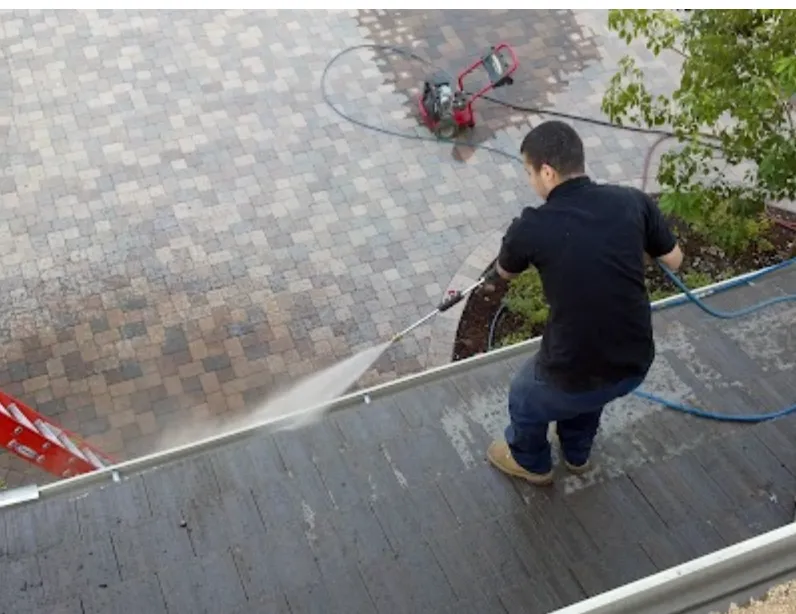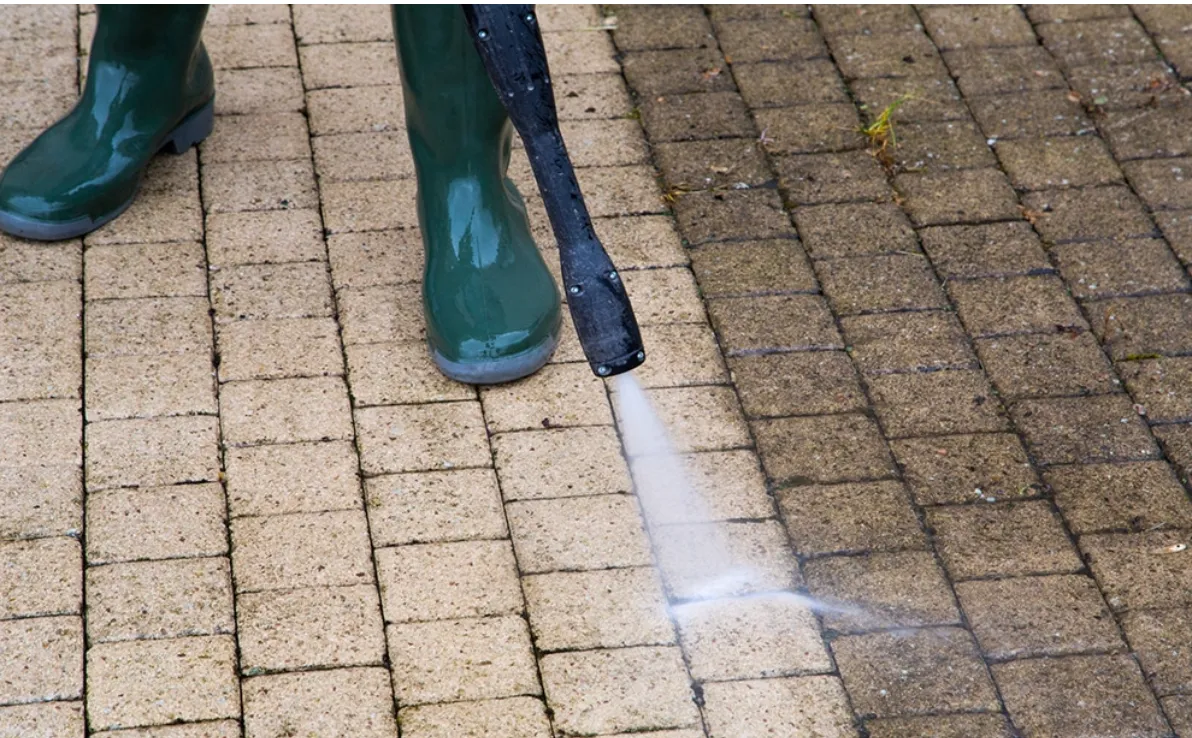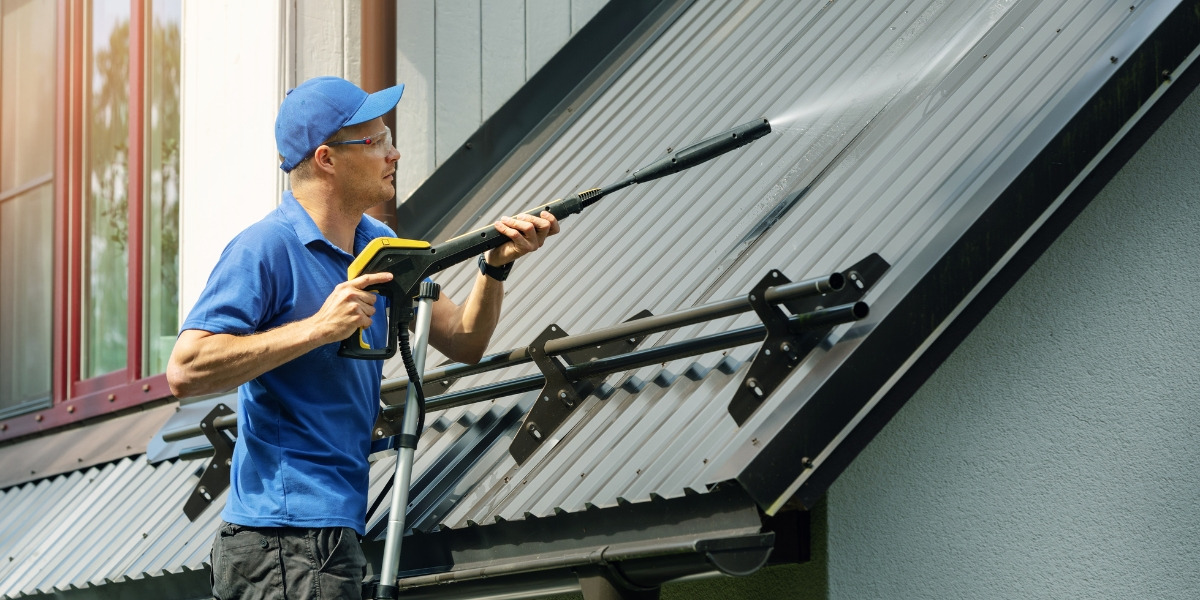Reasons Why Pressure Washing is Best for Cleaning Brick Buildings
Any brick building owner will tell you how crucial it is to keep their structures in top shape. Bricks are often used to build buildings because they are strong and can stand up to a wide range of weather conditions. A property is an investment, but it can be damaged if you neglect it or leave it unattended for too long. Thankfully, there are several ways in which pressure washing services in Dallas, TX, can save you money now and in the long run. In the post below, we are going to share a detailed overview of pressure cleaning and its use for cleaning brick buildings.
What is Pressure Cleaning?

People often use pressure washing services in Dallas, TX, to clean things like buildings, sidewalks, decks, and driveways. It involves the use of high-pressure water jets to remove dirt, grime, and other substances from the surface. A professional pressure washing company offers commercial pressure cleaning as a way for businesses to keep their buildings clean and in good shape.
There are several benefits to using pressure cleaning over power washing for your business. First of all, it is a good way to get rid of dirt and grime that has built up over time and make a property look bad. This is especially important for businesses, like restaurants and stores, that depend on curb appeal to bring in customers.
Why is Pressure Cleaning Recommended for Brick Building Cleaning?

Brick buildings, like homes and commercial buildings, can accumulate dirt and other substances over time, making them look untidy and reducing their curb appeal. One effective way to clean brick buildings is by using a commercial pressure cleaning, which is slightly different from a power wash. Here are a few reasons why getting pressure washed is crucial for cleaning brick buildings:
Effective Cleaning Procedure
Pressure washing is an efficient way of removing dirt, grime, and other pollutants from the brick structure. The high-pressure water jets are able to penetrate the pores of the brick and remove any dirt that has accumulated there, leaving the surface clean and making it appear as if it were brand new.
Saves Time, Money, and Efforts
Pressure cleaning can be an effective way to clean the exterior of brick buildings. It saves time and money compared to other methods because it can quickly and efficiently remove all harmful things from the surface of the bricks.
In addition to removing tough stains, pressure cleaning is more efficient because it covers a larger surface area in a shorter amount of time. This can be especially useful if you have a large brick building that would be time-consuming to clean by hand.
Finally, pressure cleaning requires less labor and uses less water for exterior cleaning. This can help reduce your overall cleaning costs and make it more affordable to keep your brick building looking its best.
Protects the Integrity of Bricks
Pressure washing services in Dallas, TX, can protect the integrity of bricks in a few different ways. By removing dirt, grime, and other contaminants from the surface of the bricks, pressure cleaning can help prevent damage to the bricks over time. These contaminants can lead to erosion and wear on the bricks, which can weaken them and make them more prone to damage. By removing these things on a regular basis, you can help keep your bricks in good shape and make them last longer.
Improves the Appearance of the Building
By removing dirt, grime, and other things from the surface of the bricks, pressure cleaning can make a building look a lot better. These substances can accumulate over time and make a building look old, dirty, and uninviting. By regularly removing them with pressure cleaning, you can bring out the natural beauty of the bricks and make the building look better as a whole.
Pressure cleaning can do more than just get rid of dirt and grime. It can also help remove tough stains and discolorations from the bricks. This can include things like rust, oil, and graffiti, which can be difficult to remove and make a building look untidy. By removing these stains regularly with pressure cleaning, you can keep the building looking clean and well-maintained.
Safe and Environmentally Friendly
Pressure cleaning can be an environmentally friendly way to clean the exterior of brick buildings for a few reasons. First, it can use less water than other cleaning methods. This can be especially helpful in places where water is scarce or when there is a drought. By using less water, commercial pressure cleaning can make less of an impact on the environment as a whole.
Not only does pressure cleaning use less water, but it also cleans the surface of the bricks without using harsh chemicals. Many traditional cleaning products have chemicals in them that are bad for the environment and the ecosystem around them.
Conclusion
In general, using a pressure washer to clean your brick building is a great, efficient, and environmentally friendly way to maintain the appearance of your building. Just make sure that the pressure washing company you hire is trustworthy and has done pressure washing on brick buildings before. Also, make sure the pressure wash company in Dallas, TX, follows all the safety precautions and uses commercial-grade equipment.
At Water Workz, we provide pressure-washing services along with professional power washing for both commercial washing and residential pressure washing. Since we look after all your pressure washing needs, you can trust us to deliver quality results.



